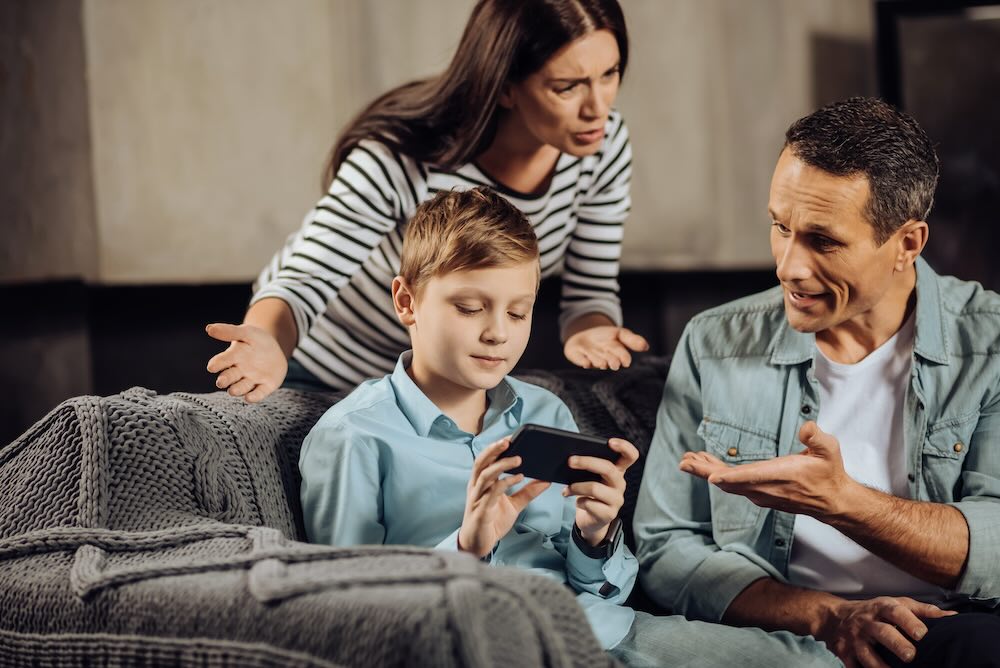Would You Pay $2,000 a Week to Get Your Kid off TikTok?

Toggle Dark Mode
Smartphone addiction among US teens is a growing problem. It’s reached the point where school boards are banning phones in class and families are establishing screen-free areas in their homes. Now, the establishment of $2,000-a-week “digital detox” summer camps has joined the list of proposed solutions to the problem.
This isn’t an entirely new phenomenon; addiction to smartphones has been a problem almost since the first internet-capable smartphone was released to the public nearly two decades ago. The problem was even officially declared to be a psychiatric disorder back in 2019. On average, 29 percent of children and young adults are said to suffer from the malady. Some studies have revealed that excessive smart device use leads to increased depression rates among teens, possibly even leading to a risk of suicide.
Now, Wired reports on high-priced summer camps that have been established to wean teens from their smartphones by going cold turkey for the summer.
The problem is real for many children, as Wired reveals that one child who was sent to a “digital detox” summer camp had three phones with him. He voluntarily handed over one of the phones, while another was found during a search of his bag. However, the third wasn’t discovered until a roommate ratted him out.
Unfortunately, that kid wasn’t the most addicted of the bunch. Another camper ran away from the camp, only to go on a three-day hunger strike when the highway patrol found him and brought him back to the camp. He was eventually admitted to a nearby hospital.
While the “digital detox” summer camps include the usual summer camp activities, camp counselors find themselves tackling issues like getting the kids out of their bunks at a reasonable time in the morning and convincing them to eat healthy food once they do rise and shine.
Their sleeping and eating habits are horrible. Most kids, especially the online gamers, are up until 2 or 3 in the morning. They don’t get up until noon or later. It’s a disaster. And their eating habits, they’re equally horrible—Doritos and Gatorade, just horrible snack food.
Founder and director of a digital detox camp
As you might expect, many of the kids who arrive at a camp like this are socially awkward and isolated, often reluctant to communicate in person with others or even to make eye contact. One camp founder says that when the kids do speak, it’s in mumbled abbreviations, they don’t finish sentences, and are reluctant to engage in face-to-face dialogue with anyone. The kids would prefer to communicate through texts or other forms of online communication.
The camp founder reports that the camp attendees are comprised of 70% boys and 30% girls, with ages ranging from 13 to 17. The boys tend to be gamers, while most of the girls are influencer wannabes who are addicted to social media.
However, the camp has a secret weapon it uses to encourage campers to form friendships and bond with one another:
They have one or two roommates in their dorm rooms. Typically, they are not happy about that. Most kids who come to our program have their own room at home. But what’s funny is that it creates this us-against-them mentality, because they don’t want to be there, and their roommate doesn’t want to be there. They hate us, they hate their parents for sending them there, so they kind of bond without meaning to right off the bat.
Founder and director of a digital detox camp
“So we have them on a very specific schedule,” says the camp director interviewed by Wired‘s Elana Klein. “They’re in their dorm rooms by 9:30 and have their lights out by 10. And then we wake them up at 6:30. I always tell my staff, ‘Plan on not sleeping much the first week.'”
In addition to the usual summer camp activities, such as going to the beach and swimming, the camp conducts educational classes, including a financial literacy class. They’ve had several kids attend the camp who have run up credit card charges by buying in-game items in games like Fortnite. Once they’ve maxed out a card given to them by their parents, they’ll use their mom’s card or a friend’s card. One kid even used their friend’s grandmother’s card.
Despite this, counselors never tell a child to never play a video game again or never check their email again. Counselors recognize that it isn’t possible in today’s always-on online world.
If there’s a bright side to this, the camp does see returning campers. How is that a good thing? Doesn’t that mean the camp doesn’t work? It’s just the opposite. While counselors expected their charges to attend “regular” summer camps in the future, they have at least one or two kids return each year, not because they’ve reverted to their old ways, but because they want to help a new batch of campers overcome their digital addictions.









